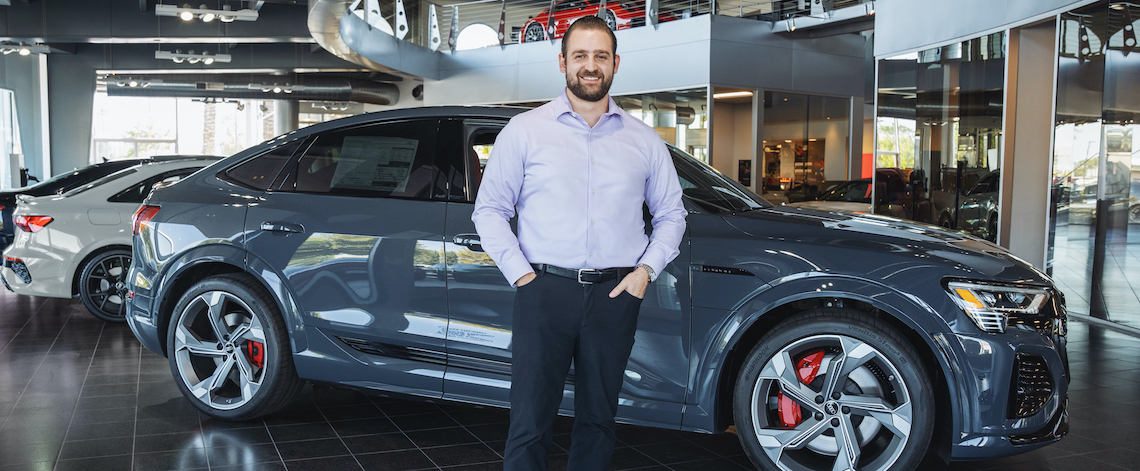
Audi Fresno General Manage Spencer Paul poses with one of the brand's electric vehicles. Audi Fresno photo
Written by Business Journal staff
For the month of October, Audi Fresno is partnering with the Marjaree Mason Center to raise awareness for Domestic Violence Awareness Month.
Audi is also excited to showcase its line of electric vehicles while giving customers a chance to help raise money for the organization.
For every test drive of an Audi electric vehicle throughout October, Audi Fresno will donate $40 to the Marjaree Mason Center, a local nonprofit organization dedicated to providing services and support for survivors of domestic violence.
“We’re happy to partner with one of the most critical social causes here in Fresno County,” said CJ Wilson, dealer principal of Audi, BMW, and Porsche Fresno. “By supporting the Marjaree Mason Center, our goal is to shine a light and raise community awareness on domestic violence, and partner on supporting this incredible organization together.”
Audi Fresno General Manager Spencer Paul encourages the community to experience the all-electric Q4 e-tron and Q8 e-tron models, which embody Audi’s commitment to innovation and sustainability. “By test driving these vehicles, you’re not only embracing the future of driving but also supporting an important cause,” says Paul.
The Marjaree Mason Center is Fresno County’s only dedicated provider of domestic violence and support services offering emergency and longer term shelter, 24/7 crisis response, counseling, legal support, and more. Funds raised from this campaign will directly contribute to these essential services, helping survivors throughout Fresno County rebuild their lives.
“Efforts like these not only help provide critical funding to support our services for survivors of domestic violence, but they bring attention and awareness to the issue of domestic violence that is too often shrouded in silence,” said Nicole Linder, CEO of the Marjaree Mason Center. “When businesses like Audi Fresno choose to get involved, it helps create a culture of safety, resilience, and hope for survivors and their families, who feel the support of their community behind them.”








